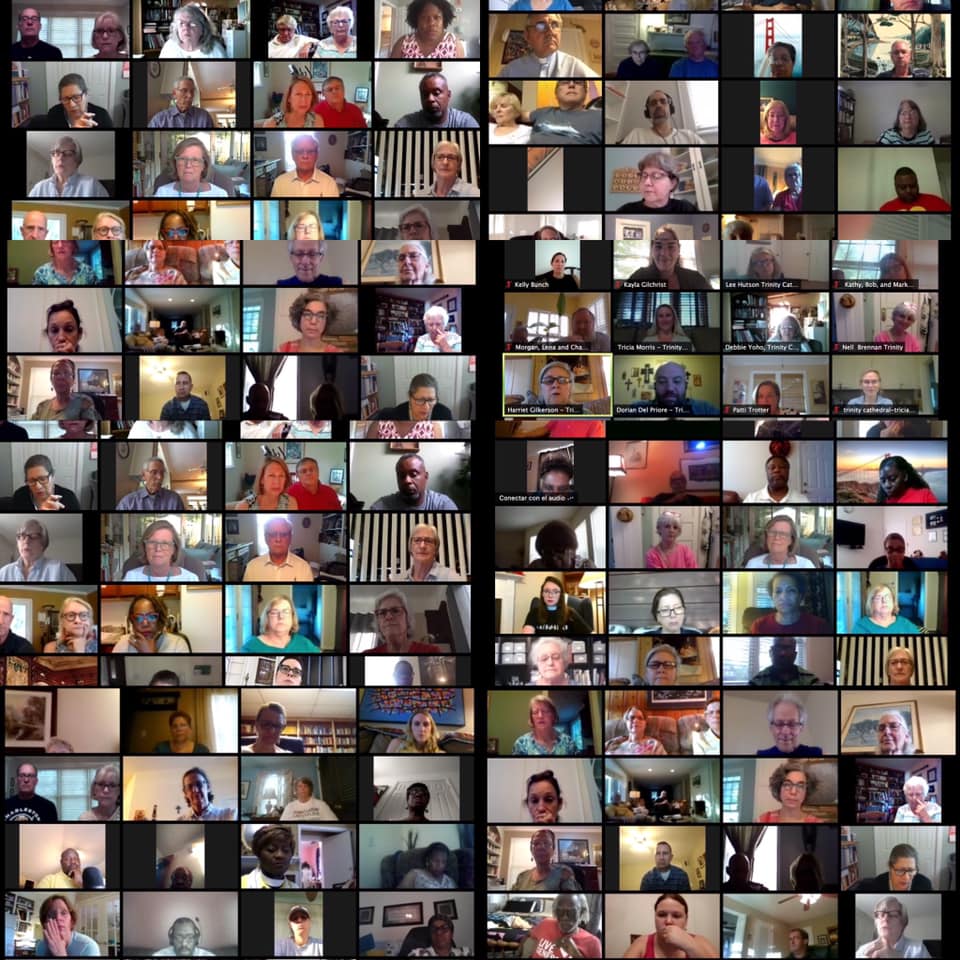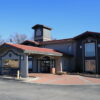John T. Martin, Evansville Courier & Press
EVANSVILLE — A network of Evansville churches is calling for an outside group to analyze local crime patterns, with the goal of making neighborhoods safer.
Congregations Acting for Justice and Empowerment also wants continuing local emphasis on affordable housing solutions and teen mental health.
CAJE normally conducts a spring rally, attended by the group’s congregations, with local government officials as invited guests. The group calls the event its Nehemiah Action rally.
But because of the COVID-19 pandemic, Monday night’s event was done via Facebook, with CAJE members pleading for action on its three priority issues.
“We’re not hear to make our community leaders comfortable; we’re here to effect change,” the Rev. Brian Buschkill of St. Peter’s (Highland) United Church of Christ said in the video.
Here’s what CAJE and Mayor Lloyd Winnecke had to say about the group’s three main issues.
Neighborhood safety
CAJE officials want the National Network for Safe Communities to conduct the local crime study.
The New York-based group works with communities on crime prevention strategies. These include law enforcement and community partnerships and outreach to identifiable groups of individuals known to be involved in criminal conduct, according to the group’s website.
Public safety concerns often come up in CAJE’s discussions about community problems, said Pamela Decker, a member of Nazarene Missionary Baptist Church. She pointed to high concentrations of shots fired calls in Center City, Jacobsville and Jimtown neighborhoods.
Decker said the National Network for Safe Communities’ approach to crime prevention has had success in other cities.
Evansville Police Chief Billy Bolin and Winnecke both appeared in the CAJE video and endorsed the review. Winnecke said he would include a line item for the study in a budget proposal to the City Council. “when revenues are appropriate.”
There was no mention by anyone in the video about cost.
Housing
Evansville’s affordable housing shortage has been a priority of CAJE the last few years.
The group has pushed for growth in the city’s Affordable Housing Trust Fund. The fund enables qualifying homeowners to make repairs in crisis situations, and it can also assist with development of new housing.
The city’s 2020 budget includes $500,000 for that fund. The City Council, at Winnecke’s request, in March cut $2.8 million from the 2020 budget because of revenues lost due to the pandemic.
The Affordable Housing Trust Fund, thus far, has been spared any cut. Winnecke, speaking on CAJE’s video, said the pandemic likely will force additional spending cuts this year and also in 2021.
Winnecke said any cut to the Affordable Housing Trust Fund will be “at the most minimum level possible,” but he did not specify an amount.
He said the fund will be an important resource for Evansville residents facing hardship caused by the coronavirus pandemic.
Mental health
A lack of local access for youth mental health services continues to be a concern for CAJE.
The Rev. Joe Easley, a retired Methodist minister, spoke on the video about a meeting CAJE had with the parent of a 14-year-old boy who needed treatment for autism but wound up incarcerated.
A CAJE committee researched the issue and learned children with a developmental disability as well as a mental health diagnosis are “regularly turned away” from local services, Easley said.
“We learned a contributing problem was the way the state segregates funding for mental health and developmental disability services,” Easley said. “This and other complexities made us realize we were dealing with a multi-tentacled monster and would need a multi-year plan.”
Deaconess Crosspointe and Southwestern Behavioral Care, two local mental health providers, became involved last year on a CAJE task force to address the issue.
But Easley said the task force hasn’t gotten far and needs more community partners. CAJE wants more involvement from the Evansville Vanderburgh School Corp.
Winnecke said Evansville is pursuing funding for an adult addiction and mental health crisis center, which would be an alternative to incarceration.
“We lost out on a federal grant that we thought we had a real good shot at,” Winnecke said in the CAJE video. “Had we received it, the doors would have been opened. We do have some other leads, but I can tell you this, trying to raise money for anything other than COVID-19 relief is next to impossible. But we are not quitting.”
Pandemic’s impact ‘disproportionate’
The Rev. Kevin Fleming of First Presbyterian Church said on the video the coronavirus pandemic illustrates why CAJE exists.
“If we have learned anything from this time of chaos and pandemic, it is that the poor and working class members of our community are disproportionately at risk of every kind: health care, employment, financial stability, safety and security and much more.
“The reports we received tonight and the commitments we received from our elected officials bring into clearer focus the importance of the work we do together.”
Read the original article here.






